Table of contents
Editor's note:
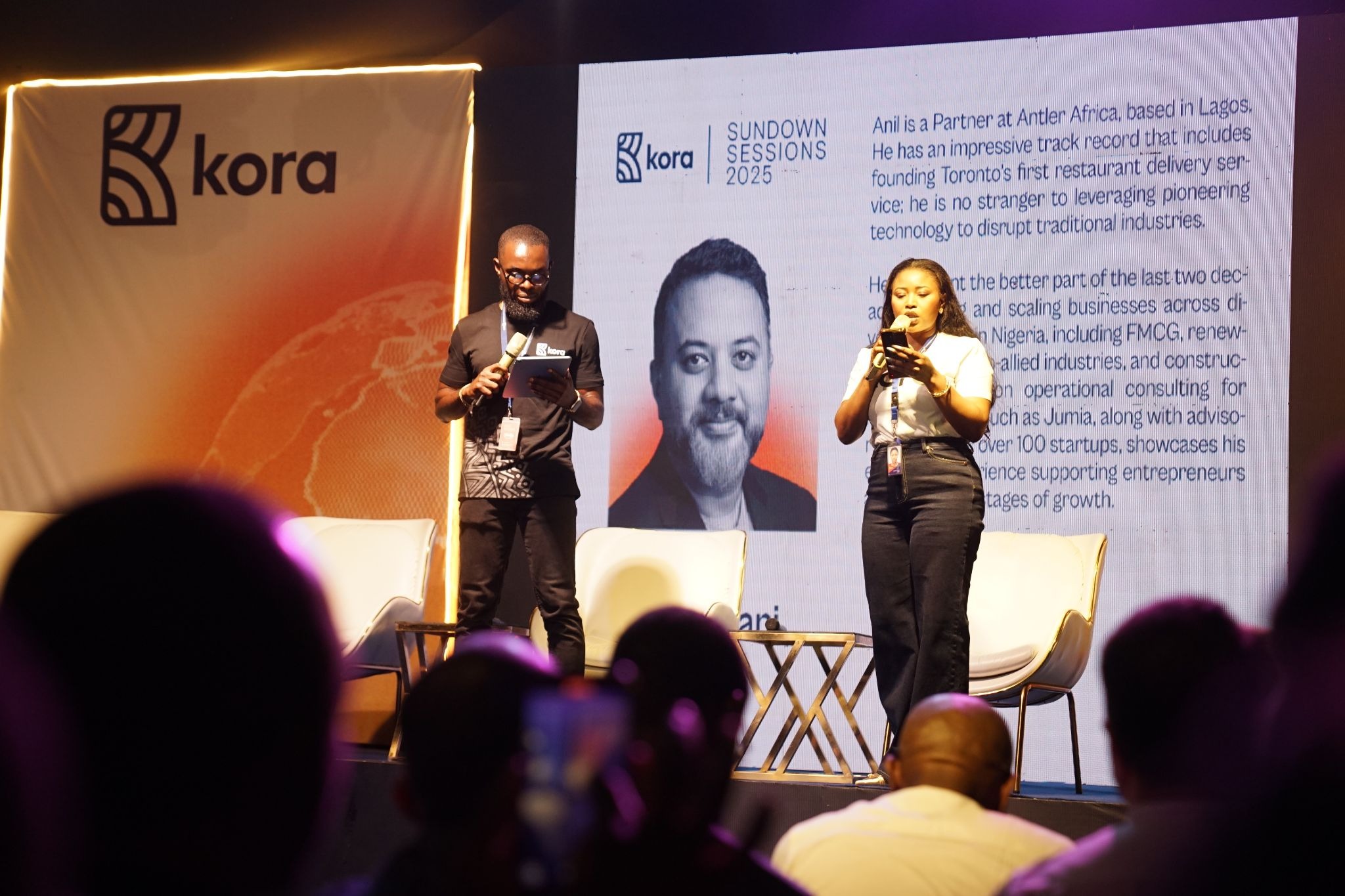
We successfully hosted the second annual Sundown Sessions on November 8, 2025, in Lagos, Nigeria. The event brought together fintech leaders, investors, tech entrepreneurs, and enthusiasts to talk about the opportunities and challenges in the intersection of African businesses and Artificial Intelligence.
Building on the success of the inaugural 2024 session, this year's event discussions focused on AI's impact on creativity, business transformation, and investment opportunities across the continent.
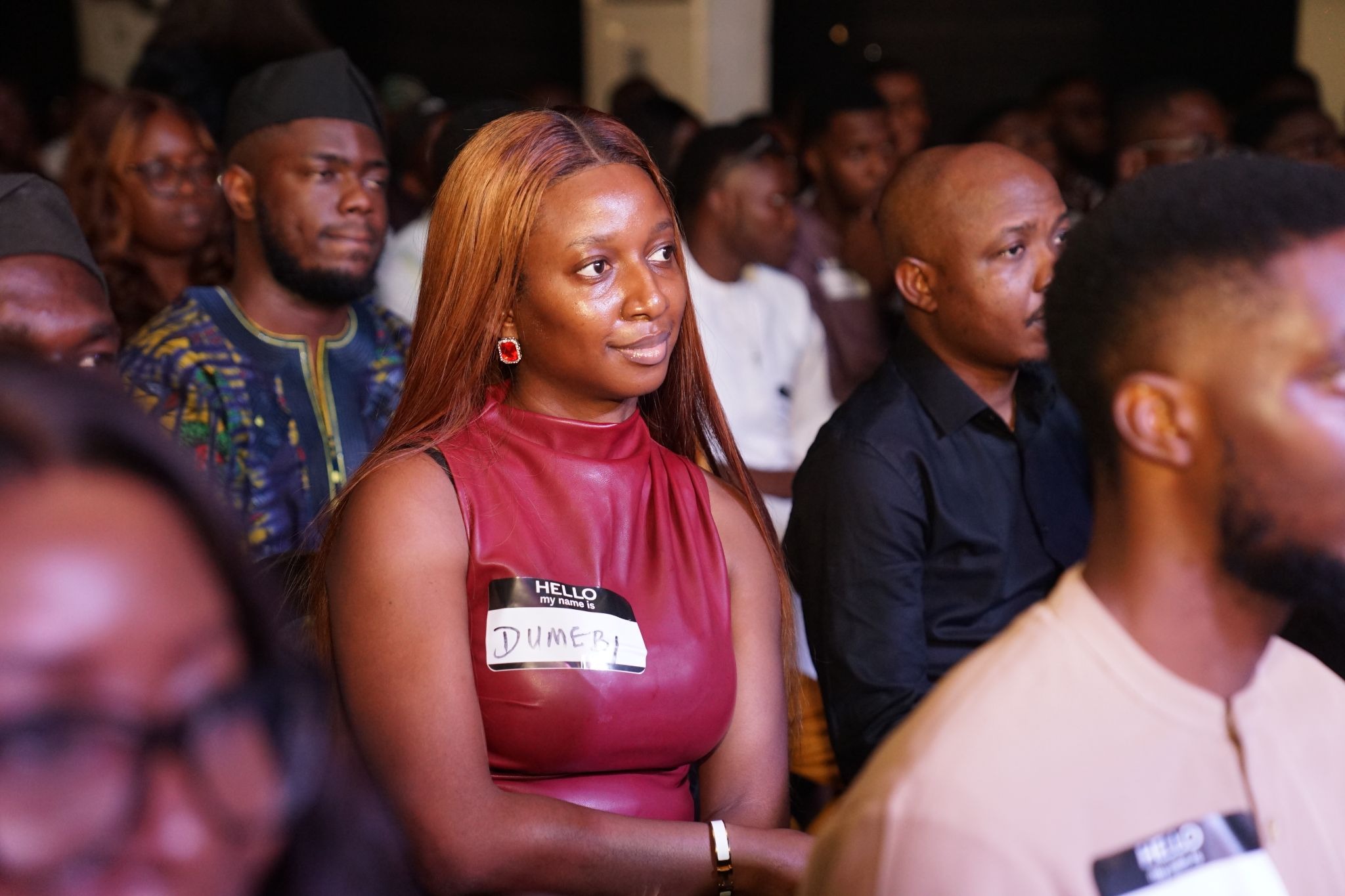
Welcome address and industry context
Peter Owunna, our board chairman, opened the event by emphasising the fintech industry's rapid evolution and the need for collaborative learning. "This industry moves at the speed of light. After the last Kora Sundown, we decided to set up our Kora innovation lab. AI drives a lot of the things that we do in Kora today", Owunna stated.
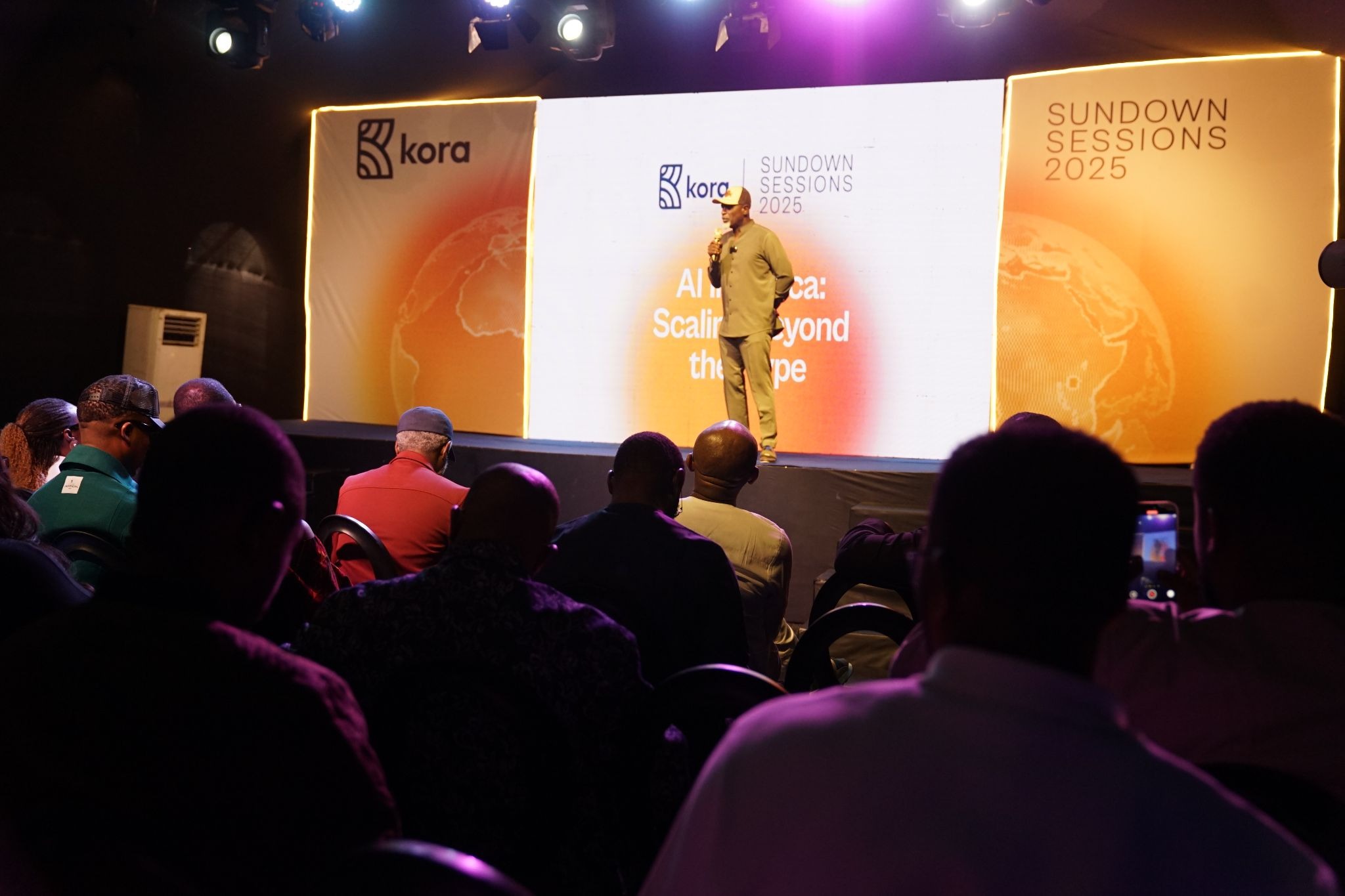
He challenged the audience to embrace the collaborative spirit of the gathering: "We need to open up our minds to be able to learn from people's experiences, to learn from those that have failed and those that have succeeded. We need to ask the relevant questions so that we can get the most out of this event."
Keynote address and vision
The event was anchored by a powerful keynote from Iyin Aboyeji, co-founder of Andela, Flutterwave, and Moove, who challenged attendees to think beyond traditional boundaries. "We are now in an era where the digital economy is going to be the foundation of the global economy," Aboyeji stated.
"Our founders need to understand that they are in such an amazing era. They are so powerful, even though they don't realize their power, that it is now time for them to have ambition for society."

Aboyeji outlined five critical areas for Africa's digital transformation: digital talent, digital finance, digital governance, digital trade, and digital infrastructure, emphasizing how AI will serve as an enabler across all sectors.
Creativity meets intelligence: The creator economy fireside chat
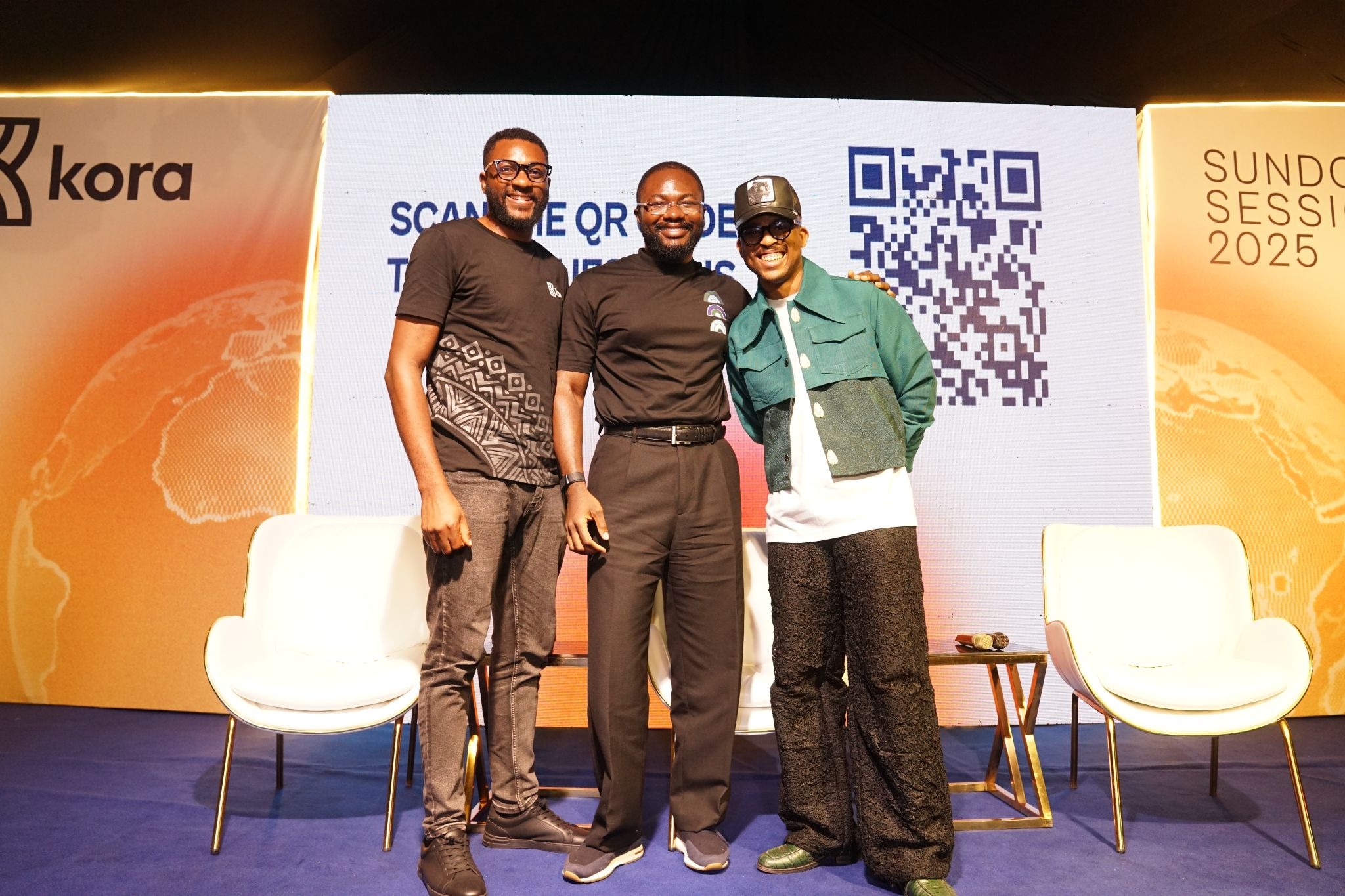
The event started with a fireside chat with Ifeanyi Nwunne, Creative Director/Founder, I.N official and Yinka Ashogbon, CEO/Founder of Ashcorp Group, moderated by Dickson Nsofor, CEO/Founder, Kora.
The discussion explored "The next frontier for creativity: AI and the creator economy."
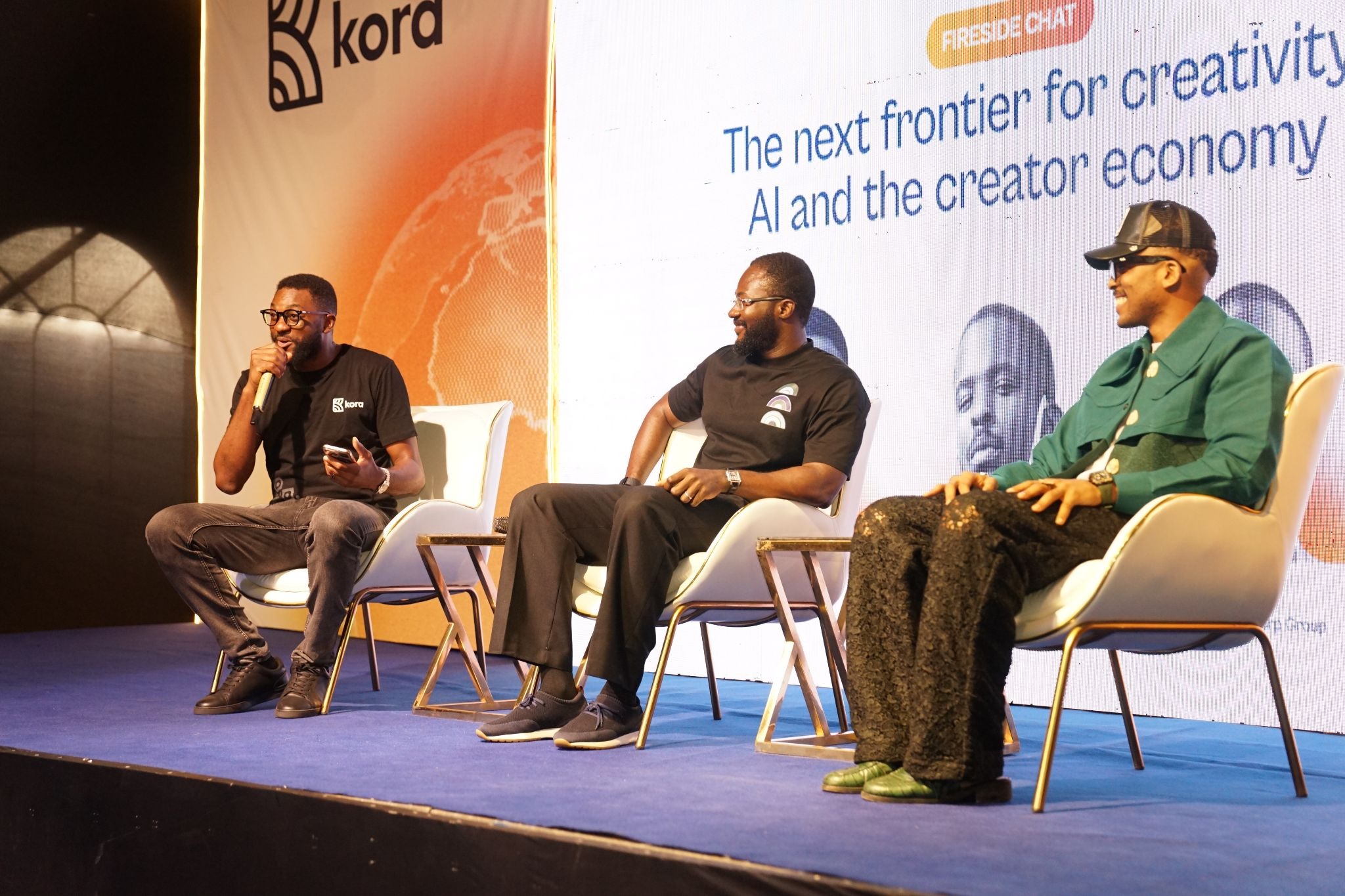
Ifeanyi Nwunne provided insight into how creative industries should approach AI: "The goal as a brand or as an entity is to focus on our authenticity and our storytelling because I believe when we have similar ideas, everybody has different environments, different teams, different communities that inspire their form of execution. I think we should see it as an education and accelerator so we can focus on our own personality and figure out how to expand on it."

Yinka Ashogbon brought a business perspective to the creative conversation, emphasising the irreplaceable nature of human creativity: "AI can take ideas and copy ideas from everyone and try to recreate something new, but it can never really recreate true high-quality work because it's not experiencing something that's new that never existed before."

He emphasised that "one person is in charge of design now and doesn't need an illustrator, doesn't need someone who knows how to use 3D software. So one or two can be an entire design team compared to what was traditionally thought of as 15 people".
Business model transformation panel: How AI will reshape African business model
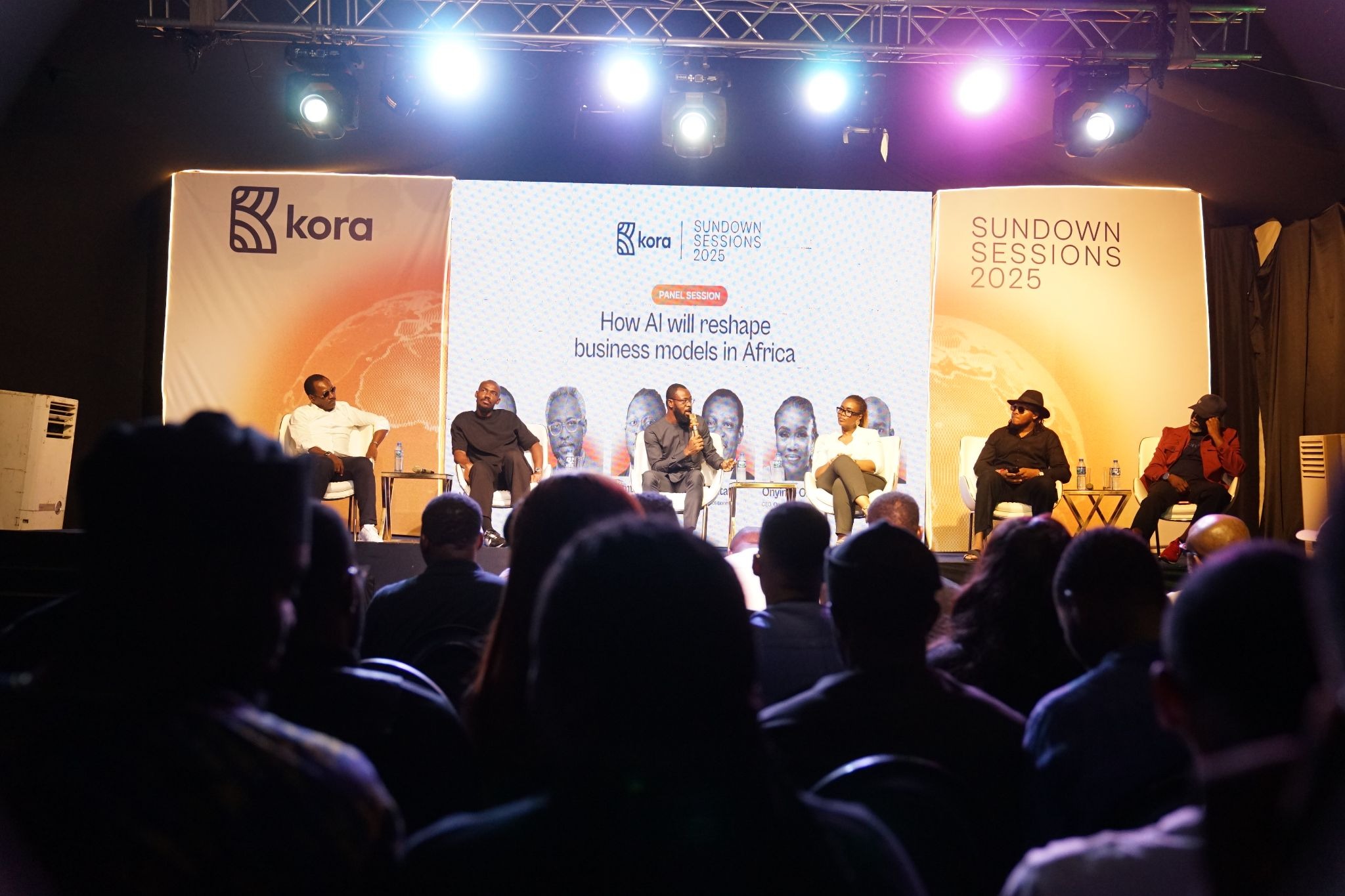
The core business panel, "How AI will reshape business models in Africa," was moderated by Chimgozirim Nwokoma (Senior Reporter, Techpoint) and brought together leading industry experts, including Somtochukwu Ifezue (Co-Founder/CEO of Piggyvest), Ugodre Obi-Chukwu (Founder/CEO of Nairametrics), Onyinye Olisah (CEO of Onus Financial Services), Frank Atat (Former Divisional Head of Payment and Solutions at FCMB), and Buchi Okoro (CEO of Quidax).
Ifezue shared practical insights: "We've done maybe almost 3x this year, but we've not increased headcounts. It's still the same number of people we had last year that we have this year, and that's because a lot of things are now more automated than they used to be."
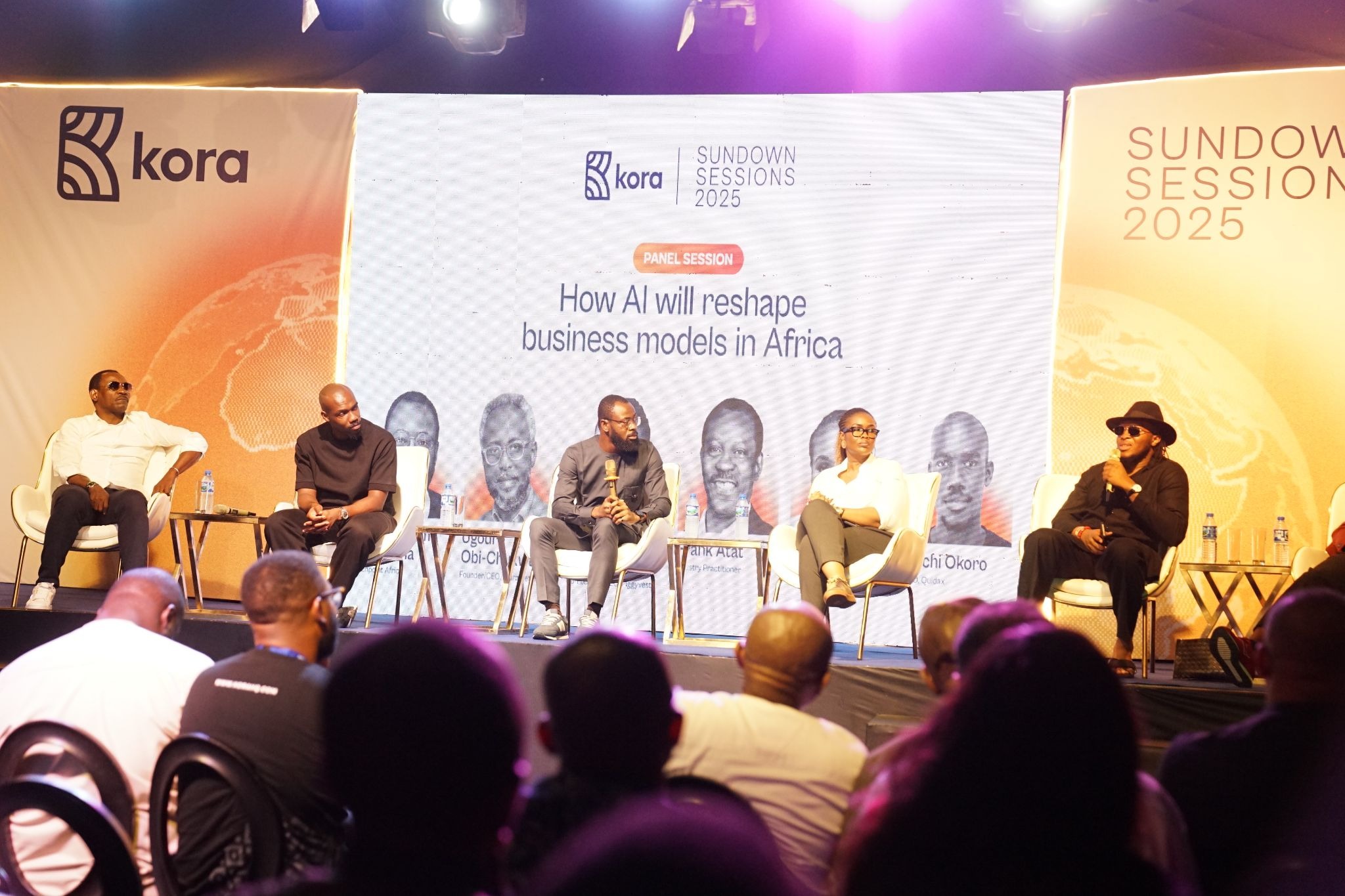
He emphasised the democratisation of learning through AI: "You can now learn at your own pace today, right? You can research on anything without having to read multiple books. You can learn multiple topics in a shorter amount of time with AI. Knowledge is now evenly distributed, and it's just a tap of your phone to learn anything."
Onyinye Olisah provided a nuanced perspective on AI's role in the workplace: "AI is here and it's here to stay, and I see the need for it. If you don't want AI to take over your job, do a little bit more than a machine can do." She elaborated on the practical applications: "Before I want to write to a bank, you speak the English, you delete, you speak it again, you delete, trying to construct that email that conveys your thought. Today, what do I do? I go to my AI engine and I tell it what I want to write, it gives it to you, and you see it's sequential, it has collected your thoughts and arranged them in a way that communicates clearly."
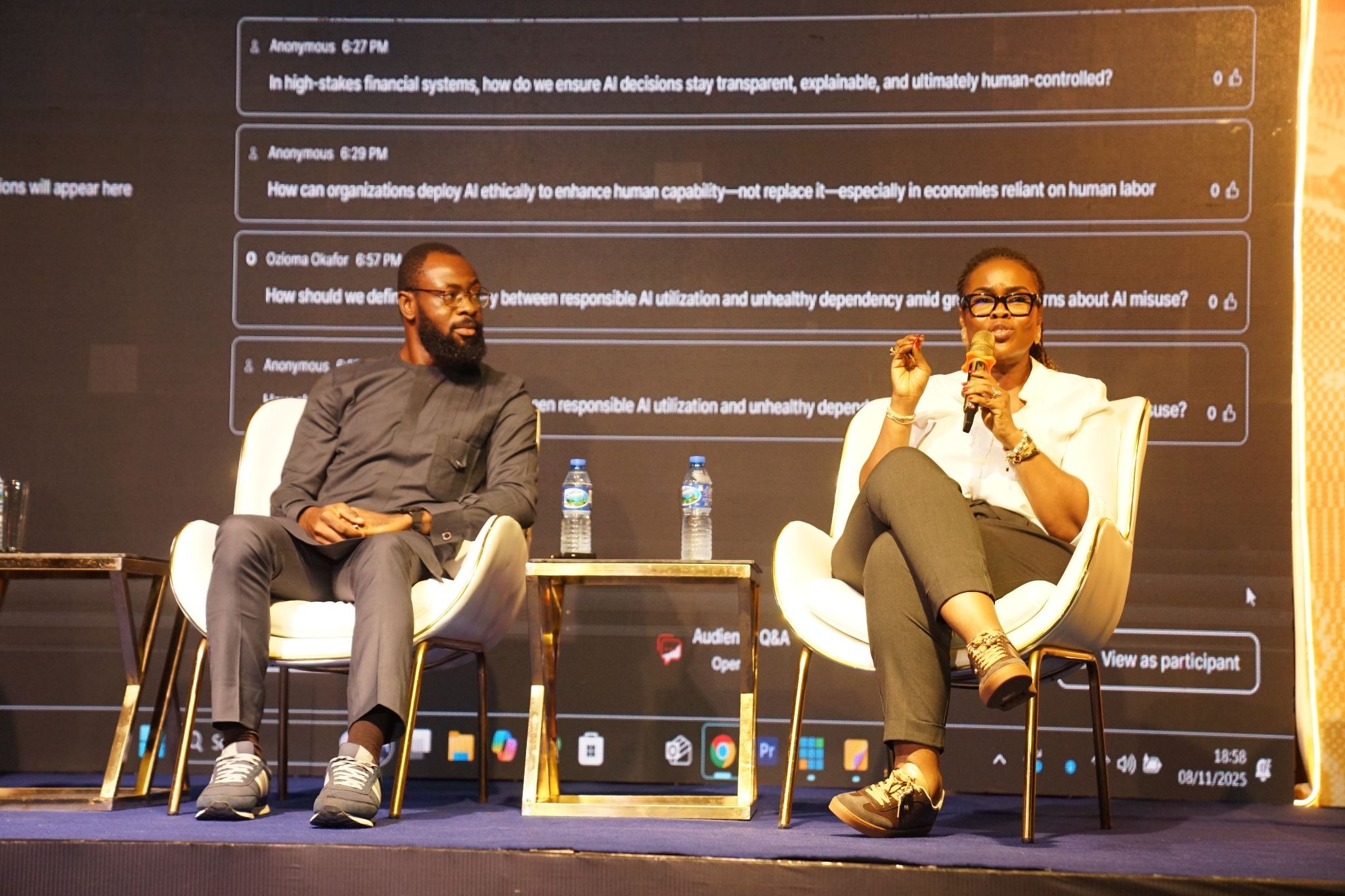
On Africa's unique position in AI development, Olisah noted: "Our biggest disadvantage when it comes to AI is that we don't have a lot of data, which is also our greatest advantage because for the West, they have to migrate decades of data into these machines. We don't have that backlog."
Ugodre Obi-Chukwu from Nairametrics highlighted AI's impact on media: "It's made us a lot more accurate with our reporting. Our research is a lot deeper. You can basically upload an entire company's annual report, and within 30 minutes, all you need to do is just create your own GPT, and it analyses your report and spits it out."
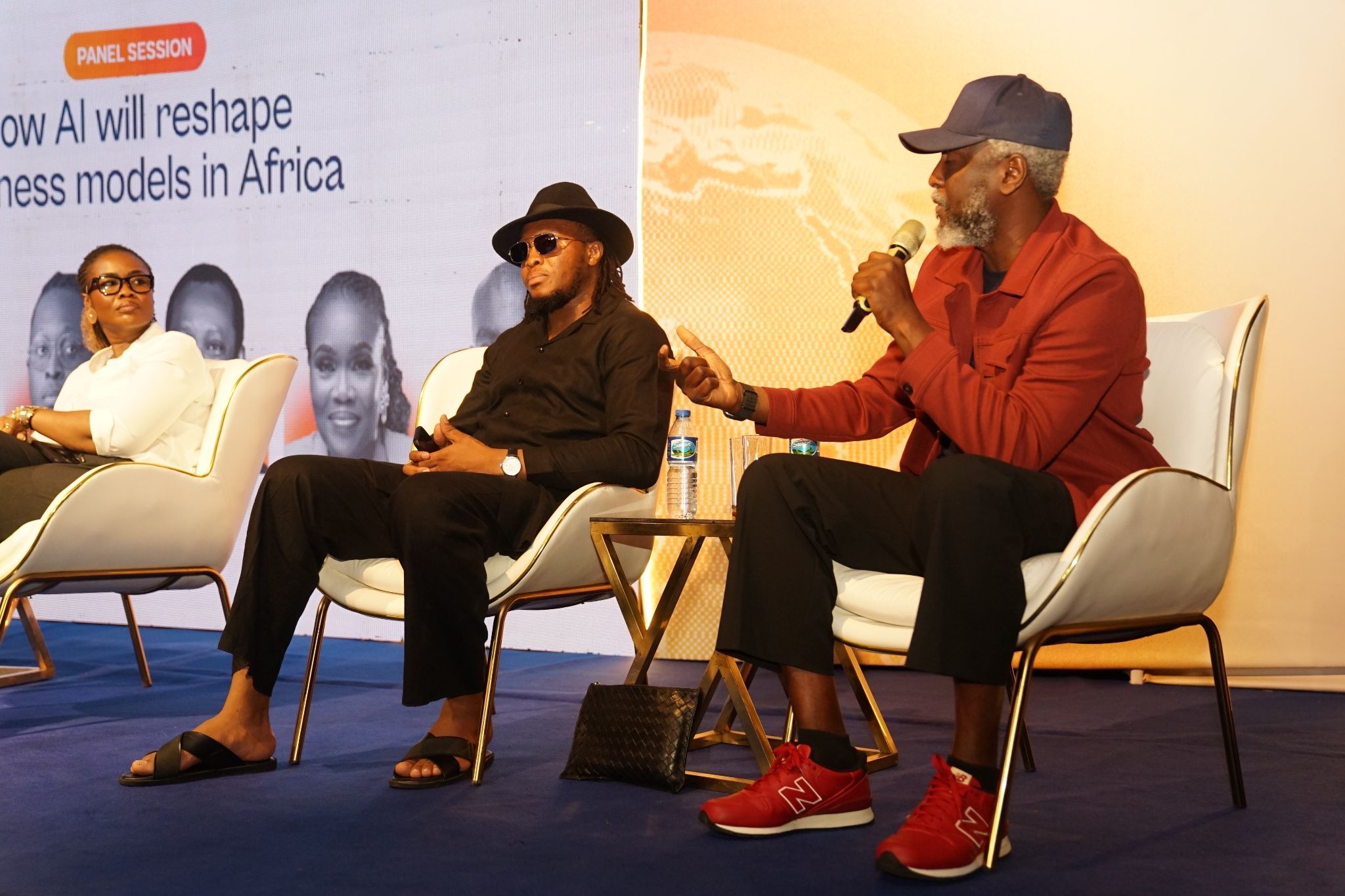
However, he cautioned against over-reliance: "Human beings naturally still like originality, and I think it's something that we all should recognise here. So AI should be a tool. It shouldn't replace your originality."
Buchi Okoro provided the panel's most cautionary perspective: "If you are not scared as a knowledge worker, if you're not scared when you look at the pace of development, the rate of change over the next 5-10 years, if you're not scared, you're really not paying attention."
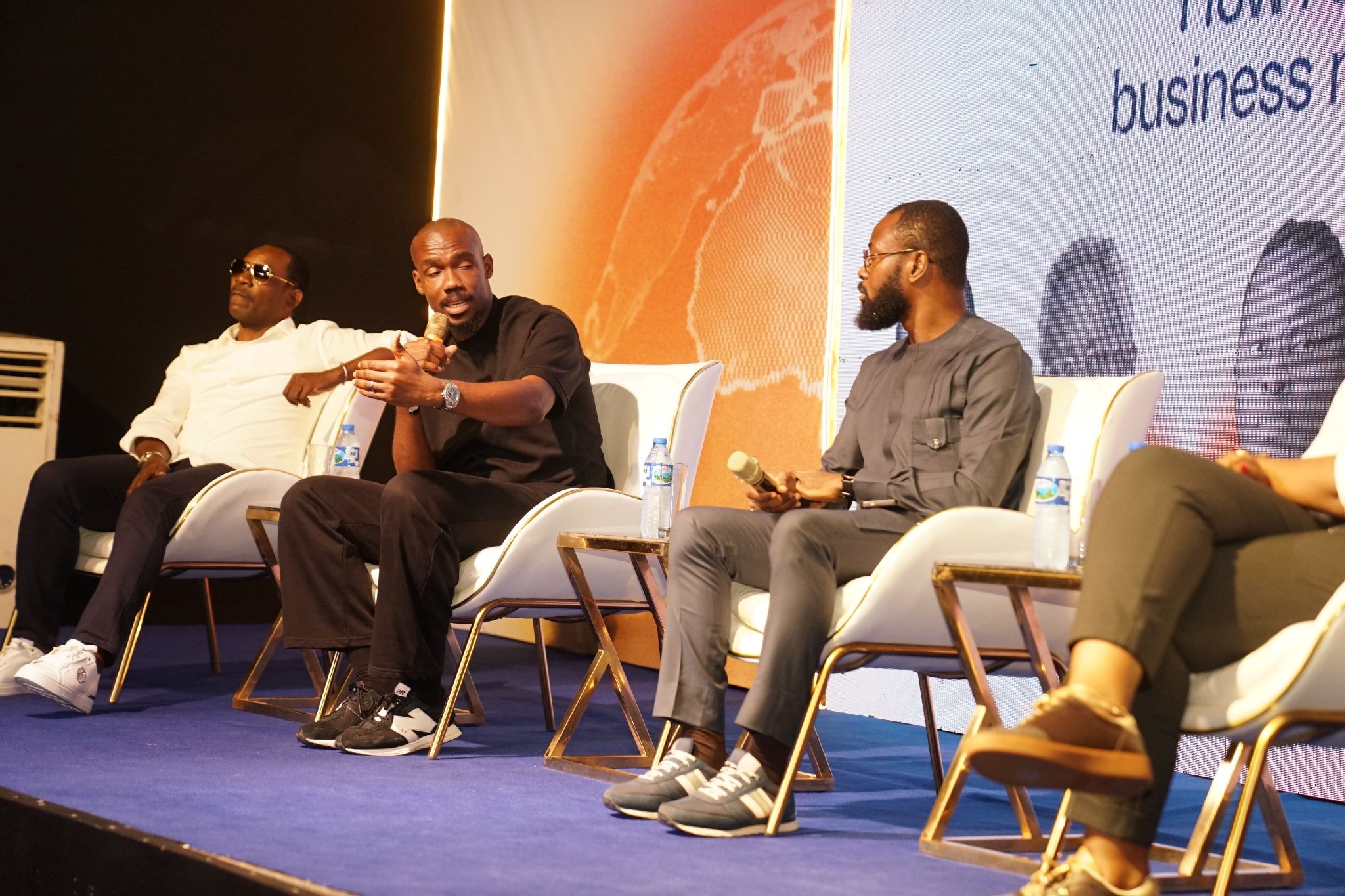
He shared a striking example of AI's rapid advancement: "Someone on the finance team built a solution that transformed from being a goal-setting tool to a full performance management system that can predict employee performance issues. Building that used to cost us $15,000 a year. The solution was built by someone on the finance team."
Frank Atat emphasised the importance of governance: "We shouldn't leave here thinking AI is good or AI is bad. I think we're just scratching the surface of AI. Beyond enhancing all the things we do, it helps us monetise a lot of things that we were not monetising before.”
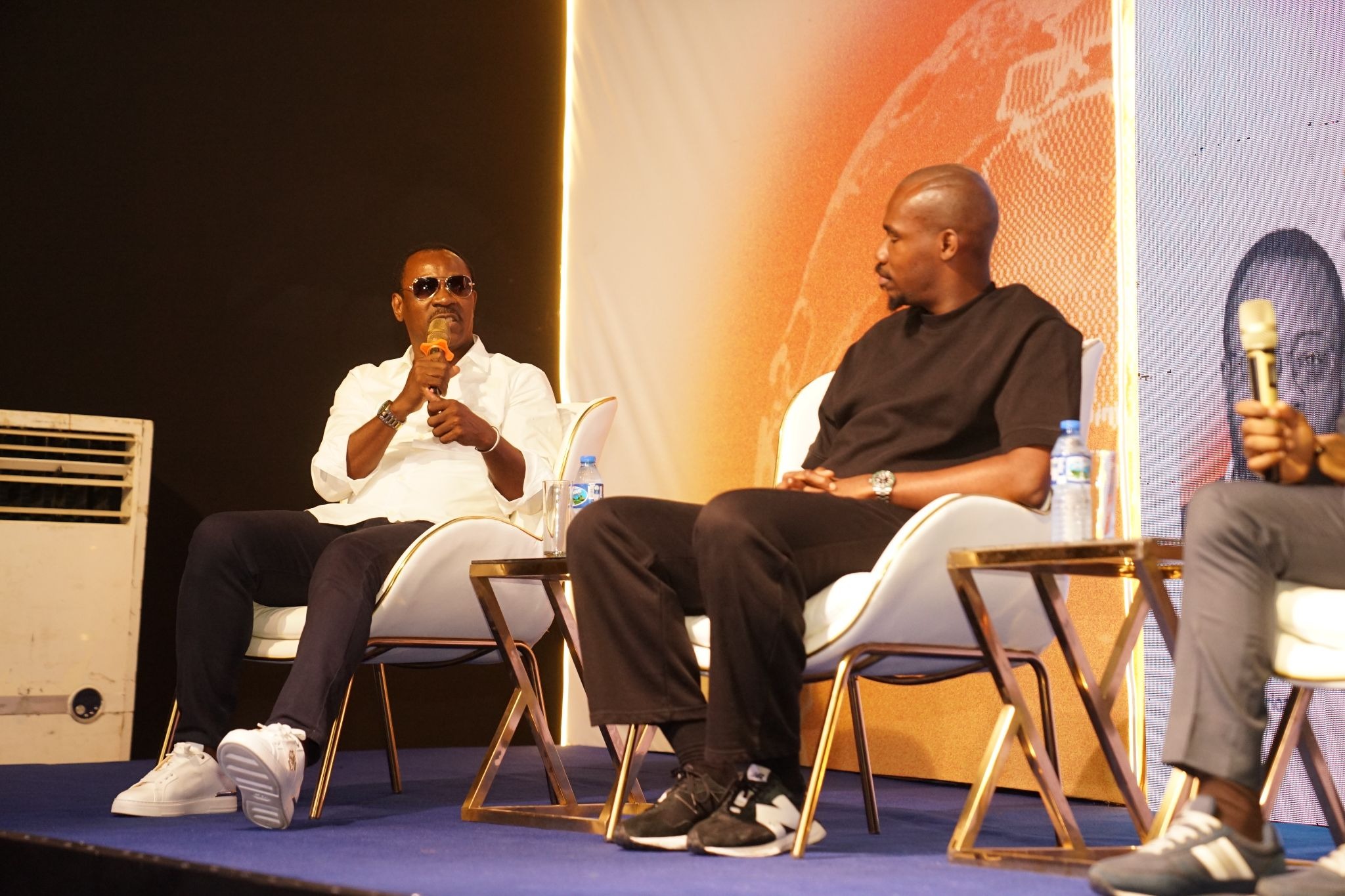
The African investment landscape: Where is the smart money going?
The final panel, "African AI startups: What use cases are investors betting on?" was moderated by Rufai Oseni, Arise TV host, and featured prominent investors Lexi Novitske (General Partner, Norrsken 22), Anil Atmaramani (Partner, Antler Africa), and Leslie Okechukwu (Venture Capital Professional).

Lexi Novitske identified key opportunities: "I am very excited about securitisation. AI is going to have a big role to play in that. It's going to take a very fragmented market and build something on top of that that enables all of these financiers versus the various meters."
She also highlighted stablecoin infrastructure as a major opportunity: "I am very excited about stablecoin infrastructure and how that's going to tie in the entire continent. Right now, it's extremely fragmented, and it's high-cost. I would say in five years nobody will be using Swift anymore."
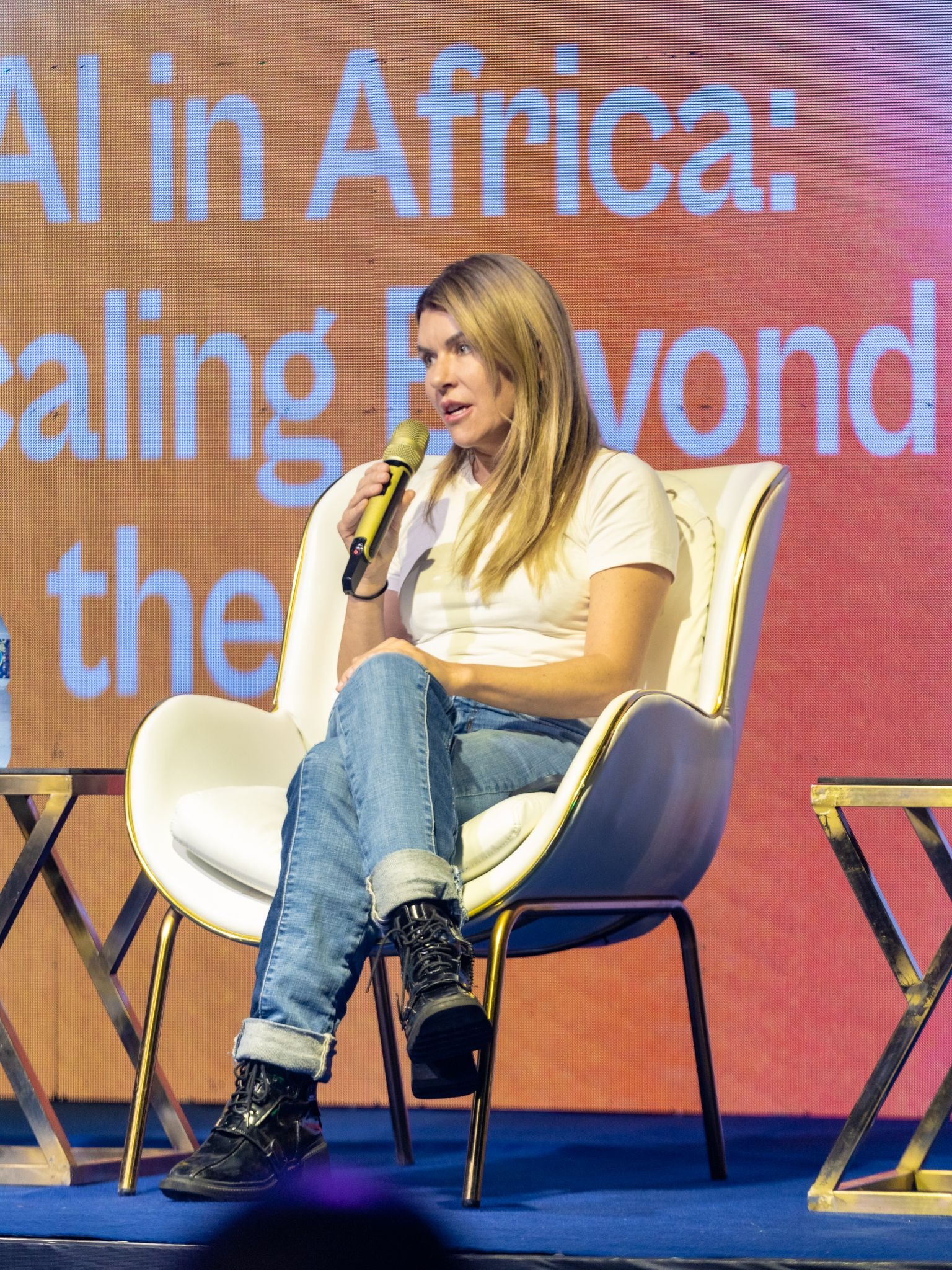
When asked about which African industry might produce the first $100 million pure AI company, Novitske predicted consumer applications would lead: "I definitely think consumer. That is where the big market potential is for Africa, certainly our consumer potential is where it's at."
Anil Atmaramani emphasised infrastructure as the foundation: "I believe it's infrastructure. We basically need more data centres. We need more structure for operating AI effectively on the continent."
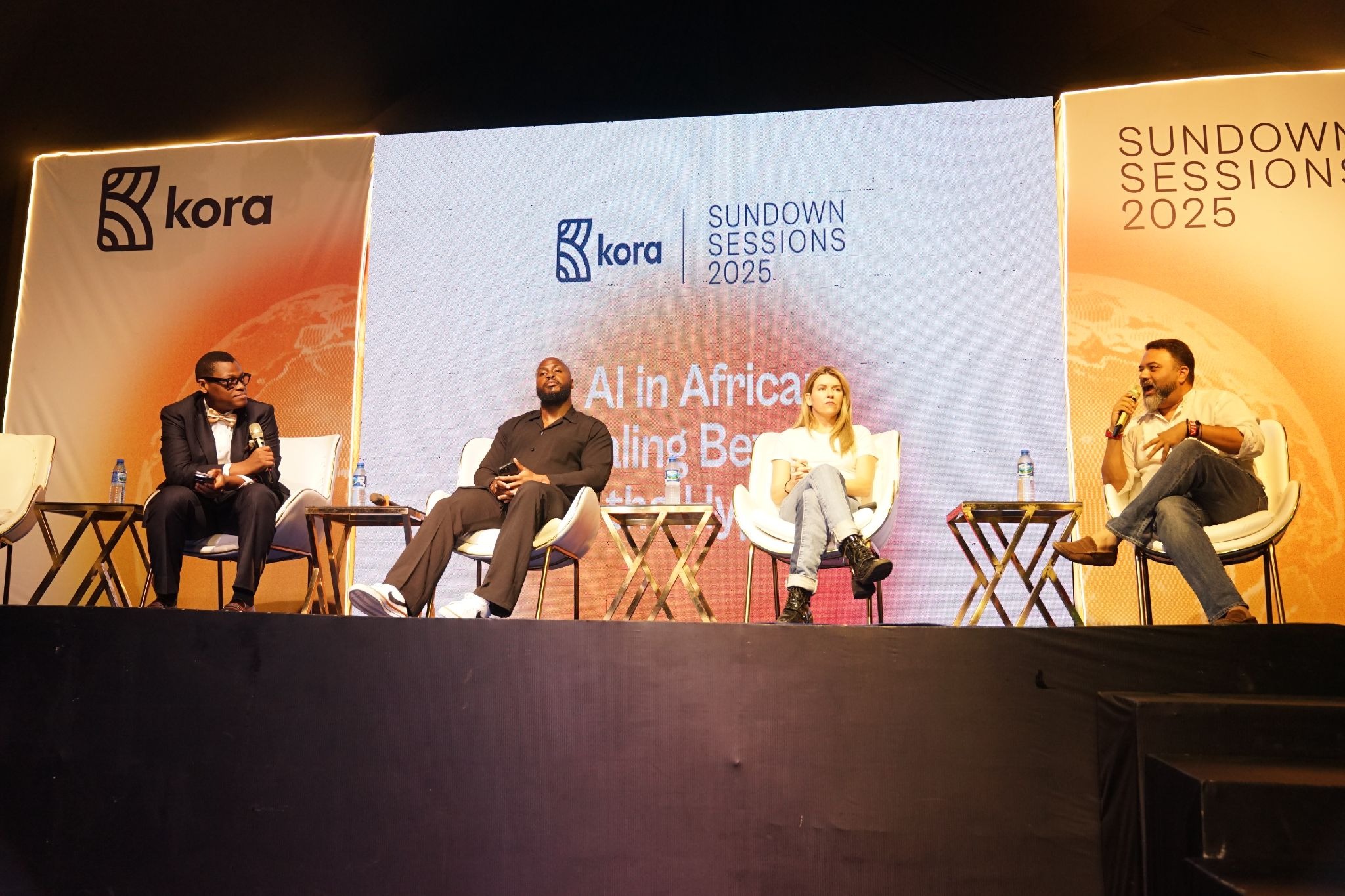
On climate tech applications, Atmaramani shared his investment thesis: "What I would bet on is somebody making a prediction model based on historical patterns, for example, what the rain outputs are going to be over the next couple of years, what the water banks are going to be in what areas and how does that impact agricultural output."
Leslie Okechukwu focused on the hybrid nature of AI's future: "I think we'll have a hybrid model. Africa needs open models to get into the game. But eventually, when companies start building their proprietary data, they collect things like medical records, credit histories, and logistic routes. When they start piling up information on this, eventually they start to close the layers to protect IP and ensure compliance."

The panel identified Nigeria, Egypt, and South Africa as the most likely candidates to produce Africa's first AI unicorn, each with distinct advantages.
Kora's Innovation: Introducing Kovo
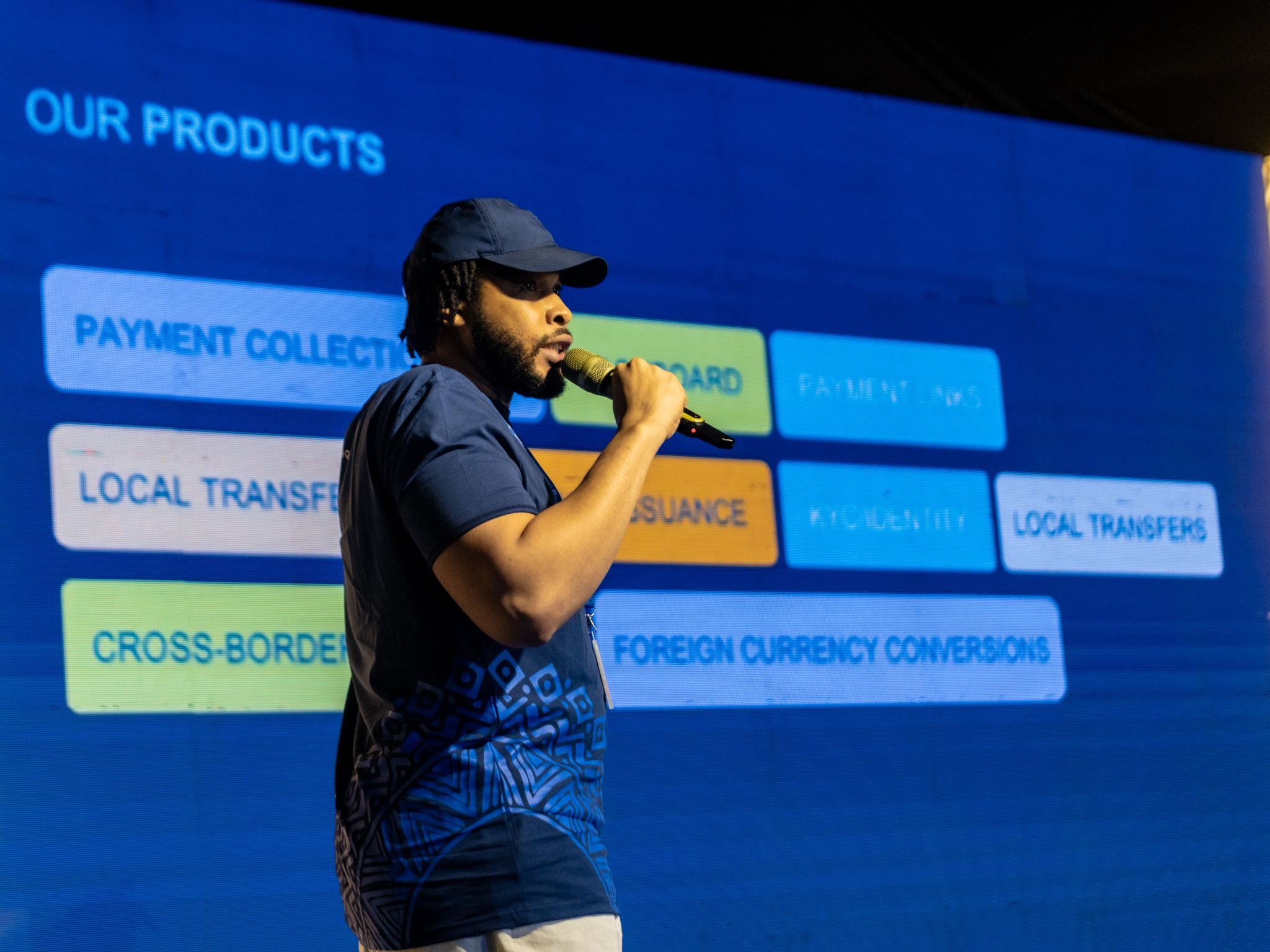
During the event, Ehi Ijewere, Senior Product Manager at Kora, demonstrated our expanded payment infrastructure capabilities, showcasing our collections, card issuing, and identity verification products across nine African markets.
Later in the evening, Christopher Ibiam, our Machine Learning Engineer, unveiled Kovo, Kora's latest AI-payment tool, which allows businesses to accept payments and manage orders directly on instant messaging apps.
Expanding Kora’s global reach
Speaking throughout the event, Dickson Nsofor, our Founder and CEO, emphasised Kora's AI-first approach and ambitious expansion plans. "Every role in Kora has an AI agent attached to it for our operational efficiency," Nsofor revealed.
Dickson Nsofor announced our expansion plans for 2026, revealing we will add support for USD, CAD, Chinese Yuan, Hong Kong Dollar, Zimbabwean Kwacha, Ugandan Shilling, and Rwandan Franc to Kora.
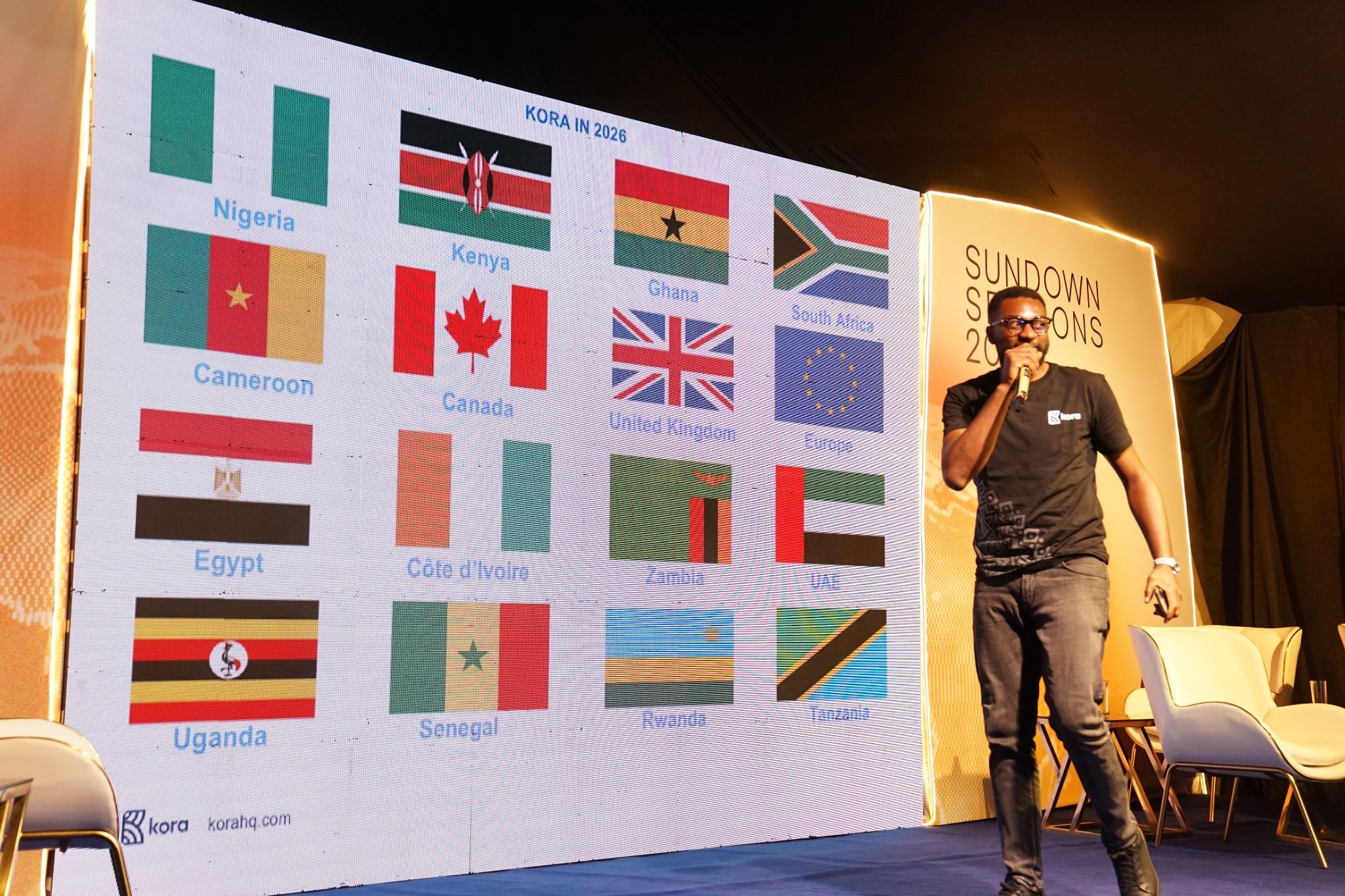
Building Africa's AI future
The 2025 Sundown Sessions highlighted both the tremendous opportunities and challenges facing African entrepreneurs as AI becomes ubuiquitous.
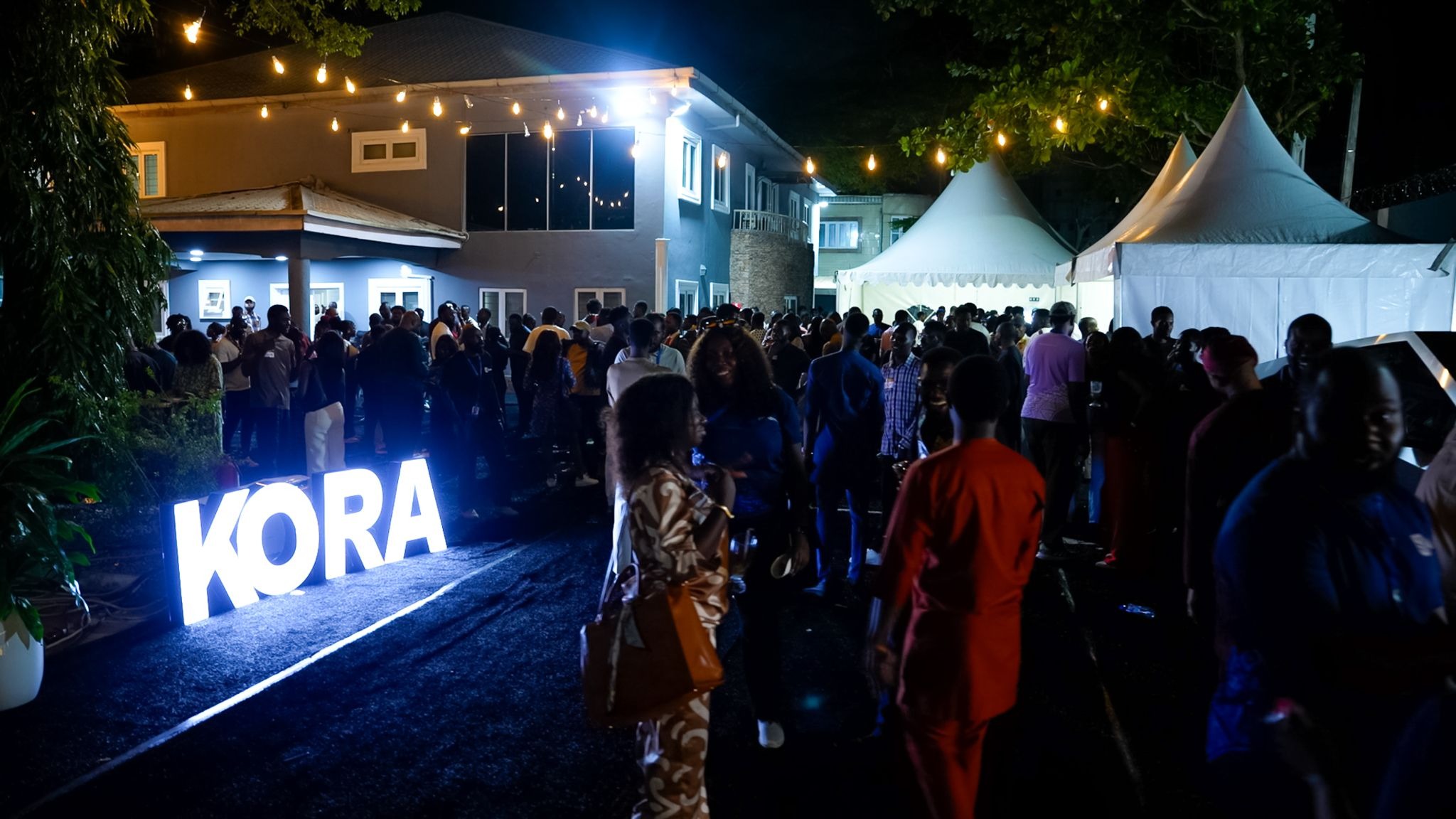
"African fintech is witnessing incredible growth," Nsofor concluded. "With Kora Sundown Sessions, we're creating a relaxed and connected experience where attendees can hear directly from the operators driving these changes and leave with ideas to enhance their work."
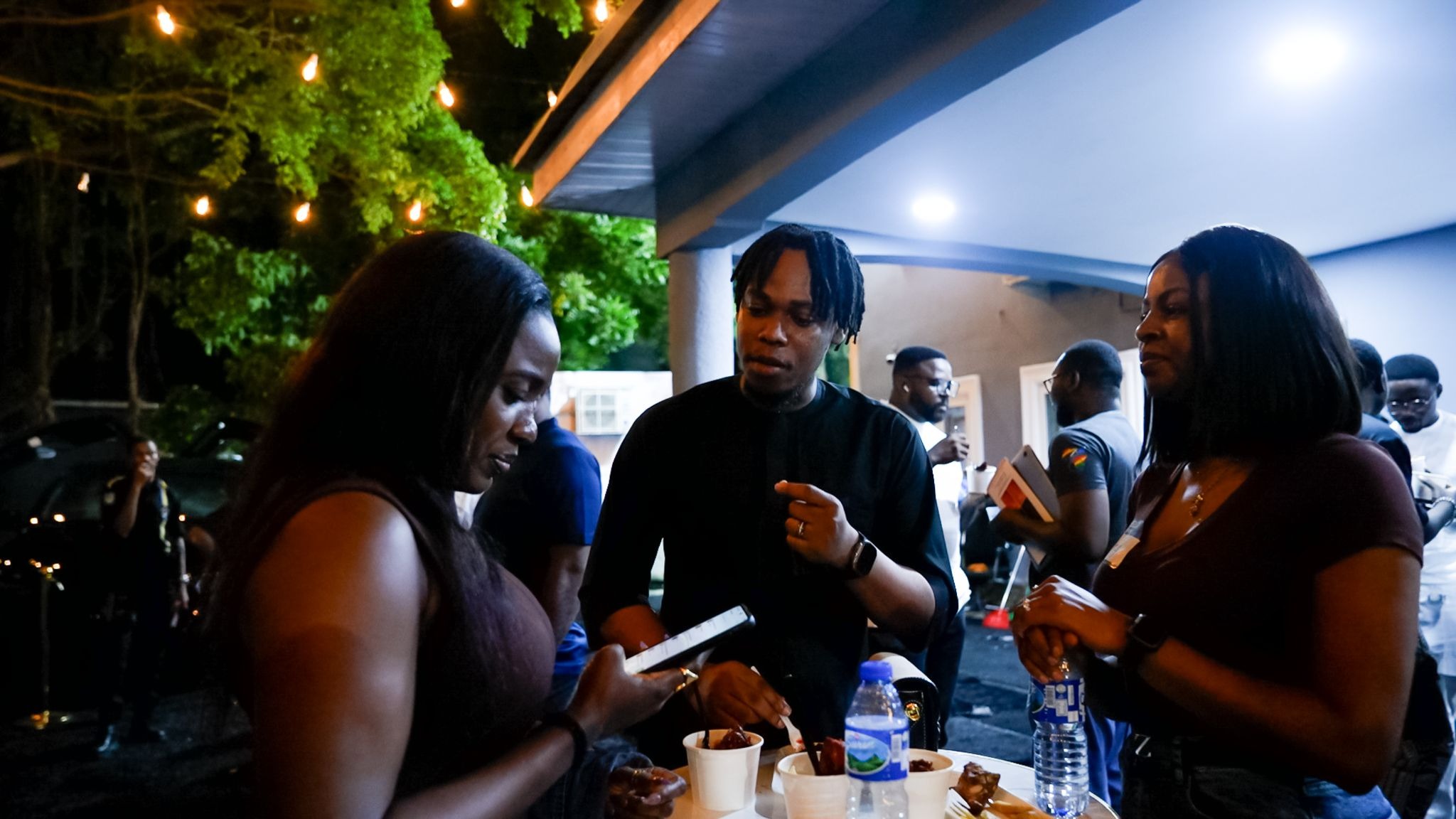
The event concluded with networking sessions, accompanied by food and drinks throughout the evening, providing attendees with opportunities to forge new partnerships and explore collaborative ventures, thereby continuing Sundown Sessions' mission of fostering deeper connections within Africa's technology ecosystem.
See you at the next Sundown.

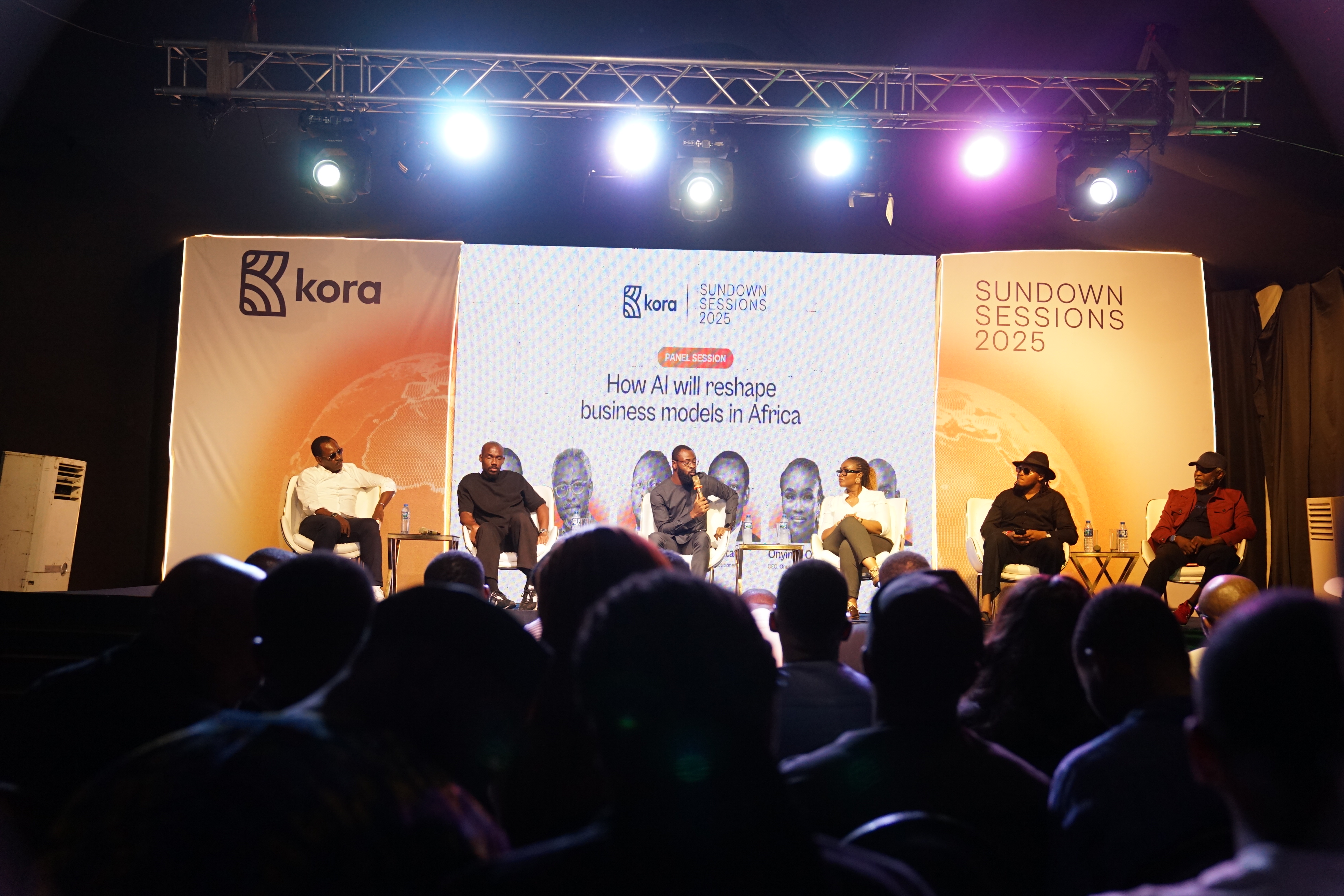








.png)



%201.png)
%201.png)

%201.svg)











%201.png)
%201%20(1).png)